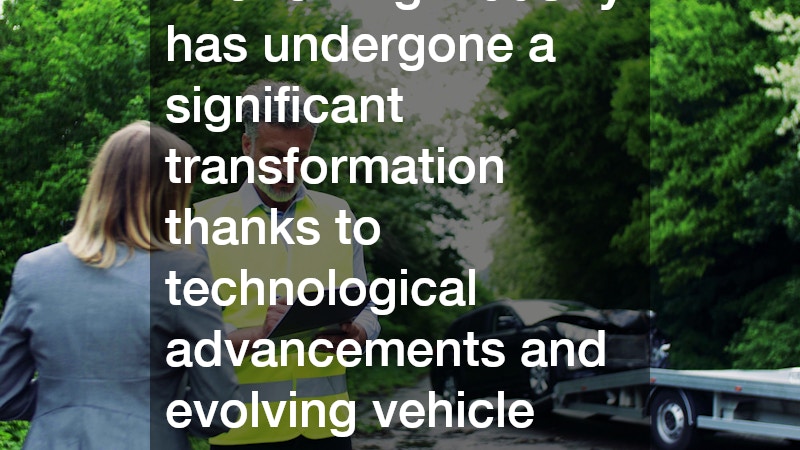Modern tow trucks are vastly more advanced than their predecessors, incorporating cutting-edge technology, enhanced safety features and design elements that boost efficiency and performance. As vehicle breakdowns, accidents and roadside emergencies continue to occur daily, the demand for high-functioning tow trucks capable of handling diverse challenges has never been greater. This article explores the seven essential features that define modern tow trucks and how they contribute to faster, safer and more reliable roadside assistance services.
Advanced Hydraulic Systems
One of the most critical improvements in contemporary tow trucks is the integration of advanced hydraulic systems. These systems provide the power and precision necessary to lift and transport a variety of vehicles, from compact cars to heavy-duty trucks. Unlike older manual or basic mechanical setups, hydraulics allow operators to perform complex towing manoeuvres with greater ease and less physical strain. This translates to quicker response times and improved safety during vehicle recovery operations. The smooth and controlled action of hydraulic arms and winches also reduces the likelihood of damaging the towed vehicle, ensuring both operator and vehicle owner confidence in the service.
GPS & Real-Time Tracking
Location accuracy is vital for tow truck operators, especially when responding to emergency breakdowns or navigating to accident sites in unfamiliar areas. Modern tow trucks are now equipped with GPS and real-time tracking systems that enable dispatchers to locate the nearest available vehicle and assign jobs based on proximity. This reduces wait times for stranded drivers and improves fleet efficiency for towing companies. Moreover, GPS navigation helps drivers avoid traffic congestion and reach their destinations more quickly, which is particularly important in urban environments where time and accessibility can be challenging. Clients also benefit from tracking services that allow them to monitor the tow truck’s arrival in real time.
Integrated Communication Systems
Effective communication between drivers, dispatchers and customers is crucial in the towing industry. Today’s tow trucks come with integrated communication tools such as two-way radios, hands-free mobile connections and digital dispatch platforms. These systems ensure constant contact, facilitating immediate updates and instructions. When emergencies arise or traffic conditions change, operators can adapt quickly, relaying vital information to customers and headquarters. This real-time communication promotes transparency and trust, while also enhancing operational coordination and response reliability across the board.
Vehicle Compatibility & Versatility
Tow trucks today must be capable of handling a diverse range of vehicles due to the wide variety of makes, models and drivetrain configurations on the road. Modern designs often feature adjustable wheel lifts, flatbed carriers and underlift equipment that can accommodate everything from motorcycles to large SUVs and even all-wheel-drive systems. This adaptability minimises the risk of causing further damage during transport and ensures legal compliance with weight and load distribution regulations. As automotive technology continues to evolve, the versatility of tow trucks is a necessary feature to keep pace with the growing complexity of modern vehicles.
Enhanced Safety Equipment
Safety is paramount for tow truck operators, especially when working on busy roads or during adverse weather conditions. Modern tow trucks are equipped with high-visibility lighting, reflective markings and auxiliary safety gear to alert other motorists and reduce the risk of accidents. In addition to visual alerts, many vehicles also feature built-in cameras and blind-spot monitors that assist drivers in navigating tight spaces and avoiding obstacles. These advancements are not just beneficial for operator safety but also protect the towed vehicle and other road users. The combination of passive and active safety features reinforces industry standards and helps maintain a safer working environment.
Load Monitoring & Control Technology
Overloading or uneven load distribution can compromise the stability of a tow truck and the safety of the operation. To address this, many modern tow trucks now incorporate load monitoring technology. These systems track weight distribution, towing angles and pressure points, alerting the operator to potential issues before they become critical. This feature is especially useful for flatbed and heavy-duty tow trucks that transport larger or irregularly shaped vehicles. Accurate load monitoring ensures compliance with transport regulations, optimises performance and minimises wear and tear on the towing vehicle itself.
Eco-Friendly Powertrains & Efficiency
As with all sectors of the automotive industry, environmental concerns have spurred innovation in the towing sector. Modern tow trucks are increasingly being designed with fuel-efficient engines and even hybrid or electric powertrains to reduce emissions and operational costs. These advancements not only help companies align with sustainability goals but also reduce the carbon footprint of towing operations. Additionally, features like idle reduction technology and regenerative braking are being introduced to conserve energy during extended recovery missions.
The Future of Towing Is Now
The towing industry has undergone a significant transformation thanks to technological advancements and evolving vehicle designs. Modern tow trucks are no longer just utility vehicles; they are sophisticated machines engineered for performance, safety and efficiency. From hydraulic systems and GPS tracking to load monitoring and eco-conscious engines, each feature plays a crucial role in shaping a faster, safer and more reliable towing experience.
For businesses in the towing industry, investing in modern tow trucks is not just about keeping up with the times—it’s about delivering exceptional service that meets the demands of today’s motorists. As the landscape continues to evolve, these essential features will remain at the core of what makes towing operations successful in the modern era.




